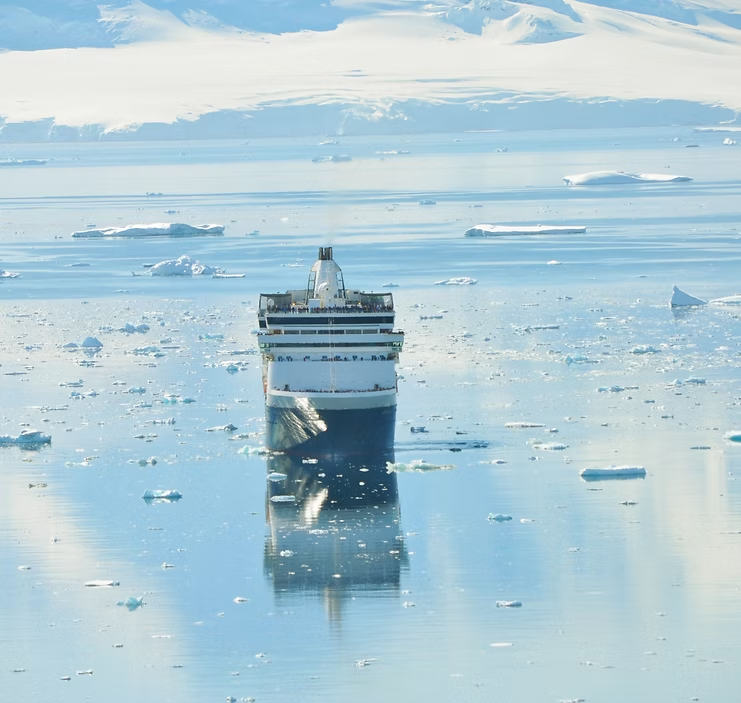
Antarctic Peninsula
Explore Antarctic Peninsula
Antarctic Peninsula
Antarctic Peninsula: The Ultimate Frozen Wilderness Adventure
The Antarctic Peninsula is one of the most remote, pristine, and breathtaking destinations on Earth. This icy wonderland is home to towering glaciers, dramatic icebergs, diverse wildlife, and surreal landscapes. Whether you're spotting penguins and seals, cruising past massive ice formations, or experiencing the midnight sun, the Antarctic Peninsula offers an adventure like no other.
Frequently Asked Questions: Antarctic Peninsula
Travel to Antarctica is seasonal, with the best time being during the Southern Hemisphere summer (November to March):
- November to December: Best for pristine landscapes, ice formations, and early-season wildlife activity.
- January to February: Peak wildlife season—best time to see baby penguins and active seals.
- March: Fewer crowds, excellent whale-watching, and breathtaking sunsets.
- Lemaire Channel – A stunning waterway surrounded by towering cliffs and icebergs.
- Deception Island – A volcanic island with steaming beaches and an abandoned whaling station.
- Paradise Bay – Known for its majestic icebergs and dramatic glacier views.
- Port Lockroy – A historic British research station and the world’s southernmost post office.
- Neko Harbour – One of the few landing sites where you can set foot on the Antarctic mainland.
- Cuverville Island – Home to one of the largest Gentoo penguin colonies in the region.
- Wilhelmina Bay – A top spot for whale watching, particularly humpbacks.
- Danco Island – Offers scenic hikes with incredible 360-degree views.
- South Shetland Islands – A group of islands featuring research stations, wildlife, and volcanic landscapes.
Antarctica has no native cuisine, but travelers on expedition cruises can enjoy:
- Fresh seafood – Often served onboard, including fish from nearby waters.
- Hearty soups & stews – Essential for keeping warm in cold conditions.
- Hot chocolate & mulled wine – Popular warm beverages during expeditions.
- Gourmet meals – Luxury cruises offer international fine dining with fresh ingredients flown in from South America.
- Expedition Cruises: The most popular way to visit the Antarctic Peninsula, departing from Ushuaia, Argentina.
- Fly-Cruise Options: Skip the rough Drake Passage crossing by flying to King George Island before boarding a ship.
- Zodiac Boats: Used for shore landings and iceberg excursions.
- Kayaking & Paddleboarding: Available on some tours for a more intimate experience with the icy waters.
- No visa is required for Antarctica itself, but you may need a visa for Argentina or Chile, depending on your departure point.
- Your passport must be valid for at least six months beyond your travel date.
- Travel insurance is mandatory, covering emergency evacuation and medical expenses.
- Visitors must follow strict environmental guidelines set by the Antarctic Treaty.
- Antarctica has no official currency—the U.S. Dollar (USD), Euro (EUR), or British Pound (GBP) are commonly used on research bases and ships.
- If visiting Port Lockroy (British Base), they accept Pounds Sterling, USD, or Euros for souvenirs and postage.
- Most cruise ships are cashless, and payments are made via credit cards.
- English is widely spoken on expedition cruises.
- Spanish and Russian are also spoken at some research stations.
- No native human population—only scientists and researchers live here temporarily.
- Follow strict environmental rules—leave no trace and avoid disturbing wildlife.
- Keep a safe distance from wildlife—at least 5 meters (15 feet) from penguins and seals.
- Do not remove anything from the environment—even rocks and shells are protected.
- Sanitize boots and gear before landing to prevent contamination of the fragile ecosystem.
- Respect research stations—visitors are welcome at some sites, but always follow guidelines.
- Tipping is common on expedition cruises but not required.
- Guides & Expedition Crew: $10–$20 per person per day.
- Housekeeping & Ship Staff: $5–$10 per person per day.
- Tipping can usually be done at the end of the cruise in cash or via onboard accounts.
- For peak season (December–February): Book 12–18 months in advance for the best cabins.
- For budget-friendly deals: Look for last-minute discounts, but options are limited.
- For fly-cruise options: Book at least 12 months in advance as these are highly sought after.
- COVID-19 restrictions have been lifted, but always check with your cruise operator for health protocols.
- Strict environmental regulations apply—all visitors must adhere to the Antarctic Treaty guidelines.
- Weather conditions can impact itineraries—expect flexibility in your schedule.
- No medical facilities in Antarctica—all medical needs must be handled onboard or via emergency evacuation.
Contact us at 281-229-0862 or admin@pointmetoparadise.com
